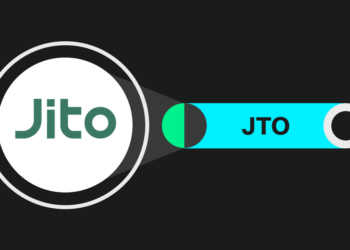Vitalik: It Is Crucial to Maintain the Robustness of the Base Layer While Carefully Extending Certain Aspects of Its Functionality
Vitalik Buterin, the founder of Ethereum, discussed the centralization of staking and scalability challenges in Ethereum at ETH HK Hackathon. Vitalik emphasized four scalability challenges of Layer 2, including proof system security and decentralization, sorting decentralization, cross-L2 wallets, and data availability space.
It is worth noting that zero-knowledge (ZK) and fraud-proof are examples of proof systems used in Layer 2 expansion solutions to prove the validity of transactions without processing them on the Ethereum main chain. It is worth mentioning that some ZK proofs are considered to be centralized because they rely on specific hardware. On the other hand, sorting represents the order of transactions before they are included in a block. In the first layer of Ethereum, miners are responsible for sorting.
However, potential centralized entities operate some second-layer sequencers. In addition, cross-L2 wallets allow users to interact with multiple second-layer solutions without switching wallets. As for data availability space, it refers to the challenge of storing a complete copy of blockchain data to verify transactions.
Vitalik emphasized that these four issues are some of the most critical challenges that must be addressed to achieve Ethereum scalability. Vitalik suggested maintaining three balances, one of which is to maintain the robustness of the basic layer, while being cautious in expanding certain aspects of its functionality is crucial.
Disclaimer: The content of this article solely reflects the author's opinion and does not represent the platform in any capacity. This article is not intended to serve as a reference for making investment decisions.
You may also like
Analyst Predicts Final Altcoin Rally, Utility Key to Gains
Altcoins may be on the cusp of one last major rally in the current market cycle, but only those with strong fundamentals and real-world utility are likely to see meaningful gains, according to Jamie Coutts, chief crypto analyst at Real Vision.

Kairos Research Report Reveals Jito’s Key Role in Solana’s 2024 Resurgence
A new report from Kairos Research highlights Jito’s pivotal role in Solana’s remarkable resurgence in 2024, transforming the blockchain’s infrastructure and economic landscape after the FTX collapse.

Rug Pulling, Market Maker Raking, What Can Save the Much-Maligned TGE?
DeFi-native TGE is a model that combines capital raising with the formation of public liquidity, overcoming traditional TGE shortcomings through on-chain liquidity and a transparent mechanism.

Grayscale Submits S-1 for Spot Solana ETF with SEC

